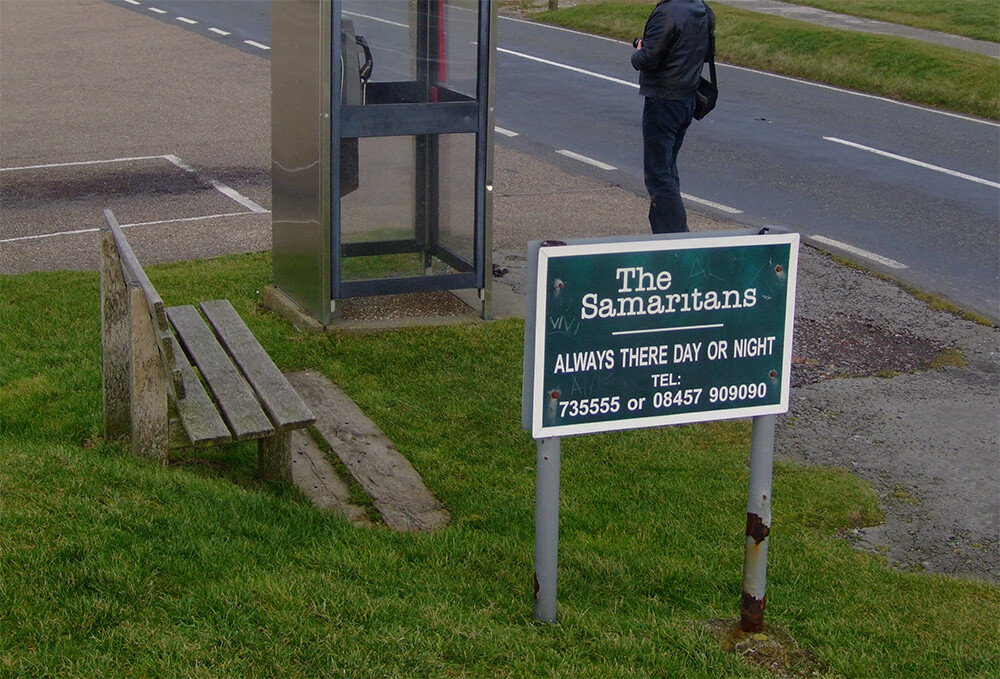4 Words You're Using Wrong (Because Of The Bible)

The Bible is how we got such words as "spake," "mammon," and of course "Nehemiah." It also contributed some words that we actually use. Bad news, though: You're using them wrong, wrong, wrong. Luckily, this does not doom you to eternity in hell, because God is merciful, and because we're happy to explain things for you.
There's Nothing "Immaculate" About Virginity
Jesus was born from the Virgin Mary, a miracle that Family Guy informs us is known as "the whole immaculate conception thing." And if you somehow never heard of it till just now, you'll still have seen various other stories borrow the idea to give characters a little messianic flair. There was the show Jane the Virgin, where the title character's pregnancy is referred to as "the immaculate conception of Jane Gloriana Villanueva." With Anakin Skywalker, according to his mother, "there was no father," so fans call that an immaculate conception. On Lost, Locke's mother tells him that he has no father — "you were immaculately conceived."

ABC
It seems a lot of people don't know what "immaculate conception" means. Because the Immaculate Conception was not the birth of Jesus to a virgin (an event you can instead conveniently just refer to as "the virgin birth"). It was the conception of Mary herself. Mary's mother was no virgin — Mary's parents had sex, which is the normal way of making kids — but the conception of Mary is called "immaculate" because she herself had no original sin.
Confusing, we know. When people hear something about Mary, and about a baby being "conceived without sin," they assume that has to mean conceived without the parents sinning, meaning conceived without sex. Surely it doesn't mean conceived without the baby sinning. Unborn babies aren't generally known for sinning much, especially if you revere unborn children as much as the Catholic Church does. And yet, an immaculately conceived baby is actually one whose parents had sex just fine but whose own soul is free of sin. Free of original sin, the flaw every other baby starts out with, ever since those ancestors sinned back in Eden.

And indeed, Jesus' parents didn't have sex (says the Catholic Church), just like you thought. But the Immaculate Conception isn't about Jesus' conception. It's Mary's. This myth is hard to bust. We've tried explaining it before, and on that article itself, a commenter joked that he believes in immaculate conceptions because his wife keeps getting pregnant while he's away. Another commenter said that makes no sense, based on the definition of Immaculate Conception as clarified in that very article, and everyone else thought this reply was just someone not getting the joke.
But rest assured, immaculate conceptions have nothing to do with abstinence, and if you yourself were conceived thanks to good old copulation, there's nothing dirty about that. Religions may have some strange ideas about sex, but few religions say it's dirty for a husband and wife to have sex to make a child — least of all Catholicism, which is super into marital sex. Any religion that does claim that will have some trouble creating new followers.
There's Nothing Especially Good About Samaritans (Though Also Nothing Bad)
The most famous parable in the Bible is surely the one about the Good Samaritan, the guy who helped a battered robbery victim after various other travelers turned a blind eye. And so today, anytime someone does a good deed, you might call them a "good Samaritan." Or, just call them a Samaritan — "good Samaritan" feels redundant. There's even a charity simply called "the Samaritans."

Back in the time of Jesus, "Samaritan" did not mean "one who does good deeds." Samaritans were a ethnoreligious group. Still are an ethnoreligious group, actually, which is why it's kinda weird that we use the word to refer to anything other than the real people today. In a Biblical context, Samaritans were mainly relevant for being an ethnic group Jews didn't much like. At one point in the Bible, someone even calls Jesus a Samaritan as an insult, right along with the insult "demon-possessed."
The reasons for this prejudice were long and complicated, so all you need to know is that, as with every interethnic political feud, there was never any good reason to hate individual members of the maligned group. And that was why Jesus told a story about a Samaritan. In the story, two Jews pass by the battered guy without helping, and then the Samaritan is the one to help, to the listeners' surprise.

Balthasar van Cortbemde
"No! This is a GOOD Samaritan!"
It would be like if, today, someone teaches a lesson by telling a story about a... about a... hold on... okay, we have to tread carefully here because casually referencing an offensive stereotype, even if we don't believe in it, might rub some people the wrong way. Let's pick a safe target: Florida Man.
It would be like if, today, someone teaches a lesson by telling a story about three men locked out of their homes. The first man, a priest, climbs up a drainpipe to an unlocked window, slips, and breaks his neck. The second man, a rabbi, drives his pickup truck straight through the closed garage door, causing much property damage in his quest to gain entry. But the third man is Florida Man, and despite what you'd think, he phones a locksmith and has his door opened professionally. This is the story of the Prudent Florida Man, a lesson that subverts our expectations.
As years go by, now imagine people start calling various prudent people "prudent Florida Man," and then simply "Florida Man," because that's what they now think “Florida Man” means. That means the parable does a hell of a good job at breaking the original Florida Man stereotype, breaking it so hard it's eventually forgotten. But it also forgets half the original message of Jesus' parable, which is "just in general, don't be racist."
Every Prodigal Son You Can Think Of Probably Isn't Prodigal
The second most famous parable from the Bible is surely The Return of the Prodigal Son. In this story, the black sheep of the family sets out, and he has a good time spending his money on wine, women and song. Then he comes home in disgrace, but it's okay, and his father celebrates his return, much to another son's chagrin. Popular media loves the phrase "the prodigal son returns." Just look at the hundreds of TV episodes named "prodigal son." And of course there was the recent Fox procedural Prodigal Son, which you heard of for the first time when it was canceled, as is standard for Fox procedurals.

Fox
Over the years, people often quipped "the prodigal son returns" when someone returned, so "prodigal son" itself became a phrase that means "one who returns." It's funny how often that sort of things happens with language. Like how we said "good Samaritan" so much, we started thinking "Samaritan" means "someone good." Or, say, what happened with the phrase "damsel in distress." We used the phrase "damsel in distress" so much, we started thinking "damsel" itself means "woman in distress." Some people even now use the word damseling, when they want to say turning a woman into a woman in distress. And yet damsel really just means "young woman."

Paramount Pictures
But anyway, back to prodigal. What does prodigal really mean, you ask? It means "spends wastefully." Guaranteed, very few of those TV episodes linked above focus on characters' finances, or on showing how one character, who likes to make it rain, is very different from his more prudent brother, Florida Man. In fact, in the news media, "prodigal son" is often misused for someone who leaves home and makes a lot of money, which might be the opposite of being prodigal.
In the parable, the prodigal son demands his inheritance while his father is still alive. He spends the whole thing, and then a famine also strikes in the land he's traveled to, though that last part really isn't his fault. Now poor, he has to work as a swineherd (a questionable choice of land use, keeping pigs during a famine), and he even envies the non-kosher pigs for their feed, he's so poor.

You don't necessarily have to know the true definition of "prodigal" to understand the parable, but it's still useful to keep handy. "Screw you, you prodigal degenerate!" you should yell at the nearest politician or worthless celebrity heir. (They'll probably think you're calling them a comeback kid.)
"Vengeance Is Mine" Means Don't Seek Vengeance
Here's another phrase that appears lot in pop culture. "Vengeance is Mine" is the title of a dozen different movies, as well as TV episodes, books and songs. Always, the title comes from someone getting revenge. Take the classic Roald Dahl story "Vengeance Is Mine, Inc." Two broke bothers (prodigal ones perhaps) decide on a moneymaking scheme: taking revenge on clients' enemies, such as by stripping victims to their underpants and then dumping them on a public street. We see them carry out one job, breaking a newspaper columnist's nose, and then they ride off into the sunset.

The phrase comes from the Bible. Only, it's not a verse about people getting vengeance. It's a verse about the Lord getting vengeance. Now, it might not seem so strange for people to quote a vengeful God when seeking vengeance themselves (exhibit A: whatever the heck Samuel L. Jackson was reciting in Pulp Fiction). But this verse is about vengeance belonging exclusively to the Lord, about how you should not seek vengeance yourself.
Our source for that interpretation? Oh, just the Bible itself. "Beloved, do not avenge yourselves," says the New Testament, "but rather leave that to God's wrath, for it is written: 'Vengeance is Mine. I will repay,' says the Lord."

Which makes sense. Most religions believe sinners get punished after death. Well, maybe not Judaism, so there could be room for vengeance if you take an Old Testament view, but other religions preach some form of hell, or karma, or reincarnation. That means religious people should see no need for exacting vengeance on those who are still alive, since that'll be taken care of supernaturally in the afterlife. And yet, it's often religious people who most believe that it's our duty to punish the wicked.
There are other reasons for punishment (deterrence, rehabilitation, incapacitation), but it's retribution (vengeance) that so many moral crusaders demand when they call for harsh sentences. Well, the next time you hear a Bible thumper say we need to fry a criminal because it's what they deserve, ask, "Have you so little faith in our Lord in heaven, that you doubt He will punish evildoers as He sees fit?"
On second thought, don't say that. That's how Jesus talked, and we all know what they did to that guy.
Follow Ryan Menezes on Twitter for more stuff no one should see.





